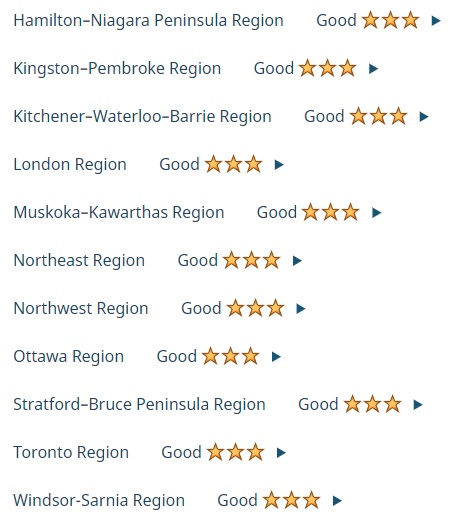What is a Personal Support Worker?
November 18th, 2021
If compassion runs through your veins and improving other people’s lives warms your heart, then you might be cut out to become a personal support worker (PSW). Working as a PSW is more than “just a job” as it entails making genuine connection with other people and weaving yourself into their personal life and space.

A personal support worker assists clients with their activities of daily living such as ambulation.
What is a Personal Support Worker?
A personal support worker functions as a healthcare provider who addresses the physical and psychosocial needs of the elderly, ill, disabled, and injured. You can find a PSW working in a client’s personal home, hospital, long-term care home, hospice, retirement home, or convalescent care facility. A personal support worker may then be self-employed or work for a private household, a home care agency, or a healthcare facility.
Across Canada, PSWs may acquire different job titles. According to Statistics Canada, some of them include:
- personal care attendant
- live-in caregiver
- personal aide
- respite worker
- home support worker
- family caregiver
- healthcare aide
- hospital attendant
- patient service associate
- long-term care aide
- patient care aide
- resident care aide
- housekeepers
According to Divya Kuruvila, Personal Support Worker Program Coordinator at triOS College, PSWs need to have compassion, patience, empathy, a positive attitude, honesty, and good team-playing skills. These characteristics, together with the quality of care the client receives, will tell the employers, staff, clients, and family members if the client is in good hands.
The PSW’s positive characteristics, together with the quality of care the client receives, will tell the employers, staff, clients, and family members if the client is in good hands.
Unlike other healthcare disciplines such as nursing, the PSW profession is still unregulated. This means there is no governing institution that establishes knowledge, skills, and behavioral standards for the job. Hence, the expectation from and accreditation of personal support workers across the country varies. Nevertheless, helping clients manage their daily tasks remains to be the core responsibility of PSWs.
What Does a Personal Support Worker Do?
Job Bank states that PSWs offer personal care and companionship to seniors and people with disabilities or who need convalescent care. Some duties of a personal support worker may include:
- assisting in personal hygiene, bathing, dressing, undressing, toileting, and ambulation
- administering medication or reminding clients to take them
- planning and preparing meals
- feeding
- changing non-sterile dressings
- collecting specimens
- housekeeping such as doing the laundry, making the bed, washing the dishes, vacuuming, and sweeping or mopping the floor
- interacting with the client
- conducting errands such as grocery shopping
- helping with exercises
- observing and reporting hazardous conditions and physical, behavioral, and cognitive changes in the client
- instructing new parents on how to tend a newborn
- turning clients to prevent bed sores
Is Personal Support Worker a Good Career?
Looking for a satisfying career can be tough, so you need to identify which factors matter to you the most. Working as a PSW can be rewarding in many ways.

According to Job Bank, personal support worker jobs have a good employment outlook. Job growth and retirements will open up a lot of new positions.
“PSWs are the foundation of the Canadian healthcare system. Therefore, the Ontario government is investing more and more to promote the PSW profession,” Kuruvila said. “The need for personal support workers is expected to double in the next 5 to 10 years.”
Kuruvila added that the Ontario government has already controlled the doctors’ compensation. This allows hiring more personal support workers and increasing home and community care funding by 4% in the next few years.
Rewarding Career – Making a difference in other people’s lives can be fulfilling. If you love spending meaningful time with other people and fostering genuine friendships, you will enjoy becoming a PSW.
Low-Barrier Entry – Becoming a PSW can take as short as 31 weeks. If you need to find a job quickly or switch to a new career, pursuing a PSW profession might be the solution for you. Also, if you are eyeing a higher healthcare profession in the future, a PSW role can be your entry point to the industry.
Flexible Work Schedule – A PSW career breaks away from the routine-based 9-to-5 job. Clients need help at different times of the day, so you can adjust your work schedule (and free time) around that to attend to your personal needs as well.
Personal Support Worker Salary
According to Job Bank, the median salary of a personal support worker is $16.85/hour in Canada and can reach up to $24/hour. In Ontario, the regional hourly wages are:
| Hourly Wage ($/hour) | ||
| Region | Median | High |
| Hamilton–Niagara Peninsula | 18 | 28 |
| Kingston–Pembroke | 18 | 25 |
| Kitchener–Waterloo | 18 | 25 |
| London | 18 | 25 |
| Muskoka–Kawarthas | 18 | 25 |
| Northeast | 19 | 29.54 |
| Northwest | 20.77 | 26 |
| Ottawa | 18 | 25 |
| Toronto | 18 | 22.5 |
| Windsor-Sarnia | 18.35 | 22 |
How to Be a Personal Support Worker in Ontario
To become a personal support worker in Ontario, you need to obtain a PSW certificate from an educational institution accredited by the Ministry of Colleges and Universities.
triOS College offers a 31-week PSW program, which includes a 12-week internship to give you the field experience you need to become job-ready. triOS partners with several healthcare organizations to provide specialized training to future employees and offer clinical placement to students.
The personal support worker program can help you develop strong administrative and clinical knowledge and skills. Our classrooms simulate a real-world healthcare setting with wheelchairs, hospital beds, and other necessary medical equipment to ease your adaptation to the healthcare environment.
Visit triOS College’s Personal Support Worker program page to learn more.
